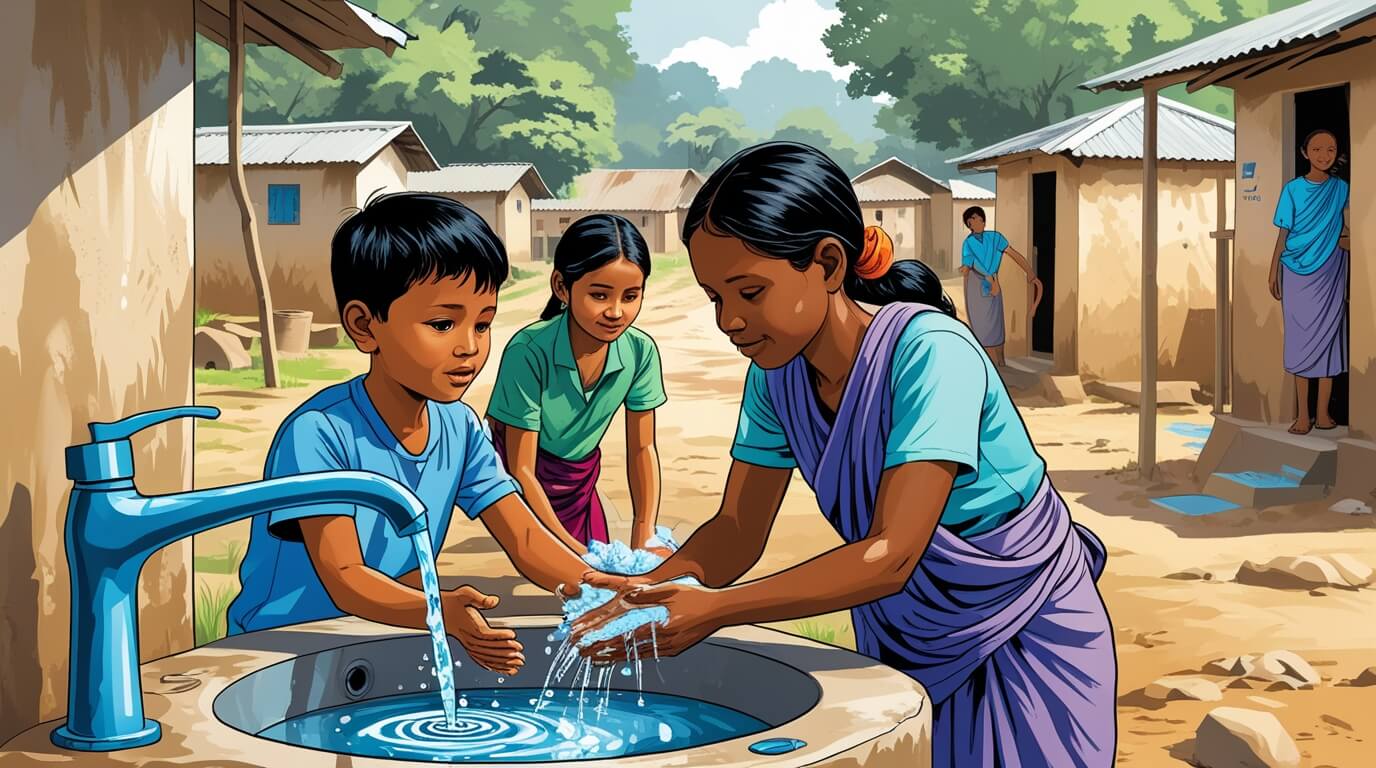Water Sanitation and Hygiene (WASH) Initiatives: A Global Imperative

Access to clean water, proper sanitation, and hygiene is more than just a basic human need—it’s a fundamental human right. Yet, millions of people around the world still lack access to these essentials. Water, Sanitation, and Hygiene (WASH) initiatives aim to bridge this gap, improve public health, reduce poverty, and foster dignity for all.
The Global WASH Crisis
- According to UNICEF, over 2.2 billion people worldwide live without safe drinking water, and nearly half the world’s population lacks access to safely managed sanitation. This crisis leads to preventable diseases like cholera, diarrhea, and dysentery—diseases that disproportionately affect children.
- WASH is deeply connected to poverty reduction. Without access to clean water and sanitation, communities face insurmountable barriers to education, gender equality, and economic development. The importance of education as a poverty reduction tool cannot be overstated, and WASH plays a key role in improving these opportunities. (Learn more about the link between education and poverty reduction.)
The Health Benefits of WASH
- When communities gain access to clean water and proper sanitation, health outcomes improve dramatically. For example, handwashing alone can reduce diarrheal diseases by up to 40%, according to the World Health Organization (WHO).
- Proper hygiene practices help strengthen immune systems, particularly in children, preventing a range of waterborne diseases. As seen in strategies to build strong immune systems, access to clean water and sanitation is foundational to health and well-being.
WASH and Gender Equality
- In many developing countries, women and girls bear the responsibility of collecting water—often walking long distances daily. This task limits their ability to pursue education, work, or other economic activities, while also exposing them to risks of violence and exploitation.
- By ensuring safe, nearby water sources, WASH initiatives can significantly empower women and girls, helping to advance gender equality and contributing to poverty reduction. When women have access to clean water, they can focus on education, income generation, and health—all crucial to breaking the cycle of poverty.
WASH and Sustainable Development
- Clean water and sanitation are central to achieving Sustainable Development Goal (SDG 6), as established by the United Nations. Access to WASH improves not just health, but also poverty reduction, education, and environmental sustainability. When local communities adopt eco-friendly living practices, they can reduce their environmental footprint, conserving water and protecting natural resources. To learn more about how individuals can contribute to sustainability, check out eco-friendly lifestyle strategies.
Successful WASH Programs
- Countries that have invested in WASH programs have seen significant improvements in public health. For instance, India’s Swachh Bharat Mission has substantially increased toilet coverage across the country. Organizations like Water.org provide microfinancing for clean water projects in underserved areas.
- Moreover, WASH initiatives directly impact food security. Without clean water, agriculture and food safety are compromised, worsening hunger and malnutrition. Many organizations combine WASH programs with efforts to combat food insecurity to address both clean water access and sustainable food systems.
How You Can Support WASH
Everyone can contribute to the global WASH effort:
- Raise Awareness: Share information about the global water crisis with your community, family, and friends.
- Donate: Support organizations like WaterAid and UNICEF that are working to provide clean water and sanitation worldwide.
- Advocate Locally: Encourage your local government to implement policies that promote water conservation and sustainable sanitation practices.
- Adopt Conservation Habits: Reduce your water consumption at home by following simple water-saving methods, such as installing low-flow fixtures and watering gardens responsibly.
Conclusion
WASH initiatives are not just about providing water—they are about saving lives, reducing inequality, and breaking the cycle of poverty. Access to clean water and sanitation empowers individuals and communities, creating healthier, more resilient societies. By supporting WASH efforts, we contribute to a world where everyone has the right to clean water, hygiene, and dignity.
